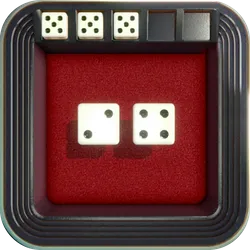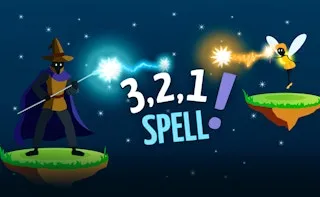Ludo Game Instructions
Set Up the Board: Each player picks a color (red, blue, green, or yellow) and places their four tokens in the matching starting area.
Roll to Start: Players take turns rolling a single die. To move a token out of the starting area, you need to roll a 6. If you roll a 6, you can either bring a new token onto the board or move an existing one. Rolling a 6 also gives you an extra turn.
Move Tokens: Move tokens along the board's path based on the number rolled. Each player’s goal is to move all four tokens clockwise around the board to the “home” area.
Capture Opponents: If your token lands on a space occupied by an opponent’s token, you "capture" it, sending the opponent’s token back to their starting area.
Safe Spaces: Some squares, usually marked with a star, are safe zones. Tokens on these squares cannot be captured.
Reach the Center: To win, you must get all four of your tokens into the center "home" area by an exact roll. The first player to do this wins the game.
title="YouTube video player"
frameborder="0"
allow="accelerometer; autoplay; clipboard-write; encrypted-media; gyroscope; picture-in-picture; web-share"
referrerpolicy="strict-origin-when-cross-origin"
allowfullscreen>
These steps are all you need to enjoy a round of Ludo, whether on a physical board or online on platforms like PunyGame!
Roll to Start: Players take turns rolling a single die. To move a token out of the starting area, you need to roll a 6. If you roll a 6, you can either bring a new token onto the board or move an existing one. Rolling a 6 also gives you an extra turn.
Move Tokens: Move tokens along the board's path based on the number rolled. Each player’s goal is to move all four tokens clockwise around the board to the “home” area.
Capture Opponents: If your token lands on a space occupied by an opponent’s token, you "capture" it, sending the opponent’s token back to their starting area.
Safe Spaces: Some squares, usually marked with a star, are safe zones. Tokens on these squares cannot be captured.
Reach the Center: To win, you must get all four of your tokens into the center "home" area by an exact roll. The first player to do this wins the game.
Ludo Video Game Demo
title="YouTube video player"
frameborder="0"
allow="accelerometer; autoplay; clipboard-write; encrypted-media; gyroscope; picture-in-picture; web-share"
referrerpolicy="strict-origin-when-cross-origin"
allowfullscreen>
These steps are all you need to enjoy a round of Ludo, whether on a physical board or online on platforms like PunyGame!
Categories:
Ludo Game Description
Ludo: The Classic Game of Strategy and Luck
Ludo, the timeless game of strategy, fun, and luck, offers endless entertainment for family and friends. Play Ludo online now on PunyGame and dive into the fascinating world of this classic board game.

Ludo
Ludo is not just a board game; it’s an experience that has connected generations across the globe. Originating from the Indian game Pachisi, Ludo has transformed into one of the most recognized and well-loved games worldwide. Its simplicity and strategic depth make it perfect for all ages, from young children to adults, and it has earned a special place in the digital world, with millions now playing it online. On PunyGame, Ludo offers an incredible multiplayer experience, making it easy to enjoy with friends or family members, whether they're next door or across the ocean. Let’s explore Ludo in-depth, from its roots to its digital revival, and discover why it remains so beloved.
The Fascinating Origins of Ludo
Ludo has a history that dates back to ancient India, where it began as Pachisi, a game played by royalty and commoners alike. Known for its simple rules and engaging gameplay, Pachisi became popular across the Indian subcontinent and quickly spread to other parts of the world. The game gained recognition in England in the 19th century, when it was modified and patented under the name “Ludo,” meaning “I play” in Latin. The board game was then introduced to the Western market and became an instant hit, particularly due to its ability to mix strategy with pure luck. From the palaces of India to households and digital devices around the world, Ludo’s appeal lies in its universality and fun.
The original Pachisi was played on large cloth boards, often with shells or seeds acting as tokens. The British version, which came to be known as Ludo, simplified the rules and made it more approachable, leading to a wider audience. Today, Ludo has a variety of versions, such as “Parchís” in Spain and “Mens erger je niet” in the Netherlands, reflecting its influence on different cultures.
Ludo: A Game of Strategy and Luck
At its core, Ludo combines both strategy and luck, making it an exciting and unpredictable game. The aim is simple: get all four of your tokens from the start to the finish by rolling the die and moving accordingly. But it’s not just about luck – there is a lot of strategy involved in deciding which token to move, when to attack an opponent’s token, or when to shield your own.
The roll of a six lets you start by moving a token out of the starting area, and it also grants you an additional roll. With careful planning, players can minimize their chances of being captured while maximizing opportunities to advance. Players often need to decide whether to move a token safely or risk exposing it for faster progress. This blend of randomness and tactical decision-making keeps every game of Ludo fresh and exciting. Moreover, the tension increases as players near the final stages of the game, trying to enter the “Home” zone without getting knocked back.
Digital Revival: Ludo in the Online World
The advent of mobile technology has allowed Ludo to make an impressive digital comeback. Online versions of Ludo, like the one on PunyGame, have made it possible to play with friends regardless of geographic location. These online versions offer a seamless experience where players can enjoy multiplayer matches, play against AI opponents, or even join competitive tournaments. The thrill of getting all four tokens home, avoiding being captured, and strategizing your every move remains intact, even in its digital format.
The online versions also come with unique features such as leaderboards, in-game chat options, and special modes that keep players coming back for more. In the digital format, Ludo's appeal lies in its accessibility – all it takes is a few clicks, and players are instantly connected, whether they’re playing from their phones, tablets, or computers. PunyGame's version of Ludo, in particular, has gained popularity thanks to its intuitive interface and easy matchmaking system, which allows for a smooth and fun gaming experience.
Why Ludo Is Perfect for Family Game Night?
One of the reasons Ludo has remained so popular is its ability to bring people together. It’s a game that can be enjoyed by both the young and old, and its rules are simple enough for anyone to learn within minutes. Unlike some complex board games, Ludo doesn’t require intense concentration or memorization – it’s straightforward, fun, and social. It’s the ideal choice for a family game night or for spending time with friends, either in person or online.
Playing Ludo with family or friends can also be an exercise in developing patience, sportsmanship, and strategy. Since winning is dependent both on strategy and the luck of the roll, players must learn to handle unexpected setbacks – like getting knocked back to the starting area by another player – and adapt their approach accordingly. The simplicity of Ludo, coupled with its competitive elements, makes it highly engaging without being overly stressful, which is why it’s been a go-to game for families over the years.
Exploring Strategies to Win at Ludo
While luck plays a significant role in Ludo, seasoned players know that there are effective strategies that can improve the chances of winning. One strategy is to always try and keep multiple tokens in play – this minimizes the risk of being knocked out of the game entirely if an opponent captures one of your tokens. Another tactic is to time your movements wisely – for example, advancing a token when there is less risk of being captured or strategically forming a “block” by landing two tokens on the same spot.
Playing defensively and knowing when to take calculated risks is also essential. If an opponent is chasing you, it might be better to move a different token instead of risking your lead. Understanding the dynamics of the game, including knowing when to attack or retreat, adds a layer of depth to Ludo that makes it more than just a game of luck. Online guides often discuss these strategies, but practicing these techniques is what really helps players excel at the game.
Different Versions of Ludo Around the World
Ludo has many versions and names across the world, each with its own unique tweaks that add flavor to the original gameplay. In Spain, the game is called “Parchís,” and in Germany, it goes by “Mensch ärgere Dich nicht.” The Chinese version, “Aeroplane Chess,” features airplane-shaped tokens and additional mechanics that introduce shortcuts and different ways to play. The Vietnamese call it “Cờ cá ngựa,” while in Colombia, “Parqués” adds a regional spin to the gameplay with unique house rules.
Each version has slight differences that keep the core of the game intact while adding new twists. For example, in Aeroplane Chess, players can jump over several places, and there are safe spots that introduce additional complexity. These regional variations highlight Ludo’s versatility and its capacity to adapt to different cultures and preferences, making it a truly international game.
Play Ludo Online on PunyGame
PunyGame offers an exceptional platform for Ludo enthusiasts to connect and play online. With a user-friendly interface and smooth gameplay, PunyGame brings the traditional Ludo experience to the digital age. Players can set up private games with friends, challenge random opponents globally, or even practice against AI to sharpen their skills. The online version offers all the excitement of the classic board game, with added convenience and features.
PunyGame’s Ludo stands out for its multiplayer capability, allowing up to four players to compete in real-time. Players can chat with each other, send emojis, and even compete for rankings on the leaderboard. The digital version retains the strategic elements that make Ludo fun while eliminating the hassle of setting up the physical board or finding enough players. Whether you’re playing for fun or aiming to beat high scores, PunyGame’s Ludo offers something for everyone.
Ludo has certainly come a long way since its days as Pachisi on the palaces' courtyards in ancient India. Whether played in person with family and friends or online via PunyGame, it continues to offer joy, excitement, and a little bit of friendly rivalry. The combination of strategy, chance, and competition makes Ludo a game that has stood the test of time, appealing to people of all ages and backgrounds. It’s easy to see why Ludo remains a favorite in today’s digital age – the thrill of rolling a six, the joy of sending an opponent’s token back home, and the ultimate victory of getting all your tokens safely home is just as rewarding online as it is on the living room floor.
PunyGame © 2022. All rights reserved.


































